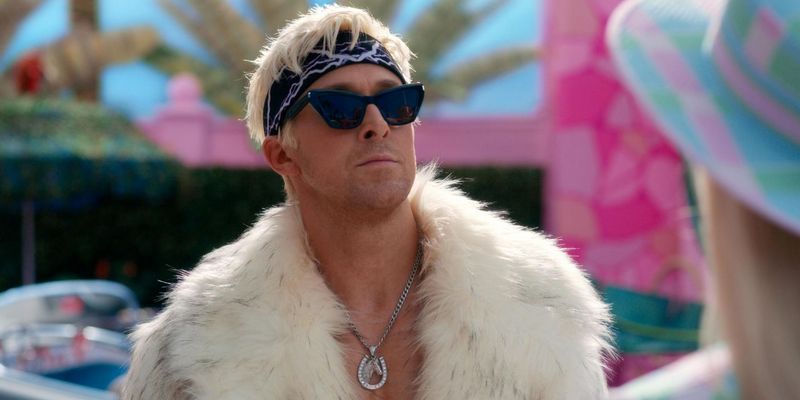It’s unfortunate because the initial half an hour is quite dazzling and genuinely humorous, akin to Robert Altman’s imaginative execution in his exceptional Popeye. The movie begins with a prologue narrated by Helen Mirren, which explores the influence of early Barbie on young girls in 1959, transitioning from their mundane baby dolls to the more exciting, ambition-inducing Barbie. We are then introduced to Barbieland through Robbie’s glamorous Barbie. This utopia is a cheerful community of Barbies, with every inhabitant holding a significant occupation. The Barbies love and support one another, reminiscent of a traditional women’s college where the students flourish in the absence of any male-induced self-doubt.
Ken, Barbie’s boyfriend, is a character who is drawn into the lives of the Barbies. As Mirren’s narration reveals, Barbie has a great day every day, but for Ken, it’s only a good day when Barbie pays attention to him. However, this artificial world can’t sustain a full movie; a plot with tension is necessary. When Gerwig takes us out of Barbieland and into the real world, the movie’s shortcomings become apparent.

Robbie’s Barbie experiences some troubling anomalies in Barbieland linked to a stress point in the real world involving a Barbie-loving mom and her preteen daughter. This journey to the real world allows Barbie to get involved with complex human problems and Ken to educate himself about patriarchal wonders. As the plot develops, the movie starts losing its sparkle; its themes are narrated more than they’re shown, diminishing their profundity.
Despite some amusing moments, the movie leans heavily on self-aware humor, like the depiction of Mattel executives brainstorming ways to monetize the concept of “female agency.” The question arises whether the actual Mattel execs allowed these jokes, but they likely saw this as a strategic move, one that would portray them as team players and boost their sales.
Barbie, the movie, ends up as a collection of smart fragments but lacks a deeper message. Gerwig and Robbie have consistently defended their movie as an intelligent portrayal of Barbie and her impact on women. Barbie might be a feminist movie, but only in a haphazard way. The plot revolves around Barbie leaving her artificial world and, like Pinocchio and the Velveteen Rabbit, becoming “real.” By the end, the movie asks us to bask in the feel-good, empowering message it presents. But the fierce, rebellious little girls we saw at the start of the movie, casting their baby dolls against the rocks, are now absent. Their unconventional desires seem to be nothing more than a minor inconvenience in this Barbieland.